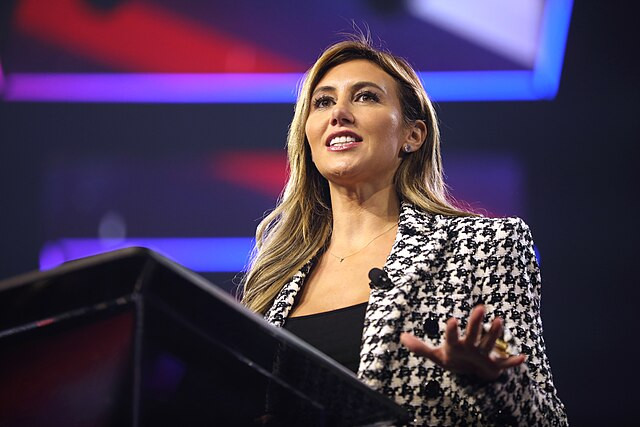Alina Habba, his attorney, has recently emerged from a period of relative silence. This development follows Trump's insinuation about potentially seeking new legal representation for an impending appeal in the high-profile defamation case brought by E. Jean Carroll. Trump was ordered to pay $83.3 million in damages, a verdict that has reverberated through political and legal circles.
Trump's contemplation of engaging "various law firms" for the appeal, as stated on his Truth Social media platform, has cast a shadow of uncertainty over Habba's future role in his legal defense team. "I am in the process, along with my team, of interviewing various law firms to represent me in an Appeal of one of the most ridiculous and unfair Witch Hunts our Country has ever seen," Trump articulated, reflecting his dissatisfaction with the trial's outcome and the judiciary's handling of the case.
Despite this backdrop of speculation, Habba has maintained a stoic front, underscored by her recent social media activity, which includes posts with figures closely tied to Trump's inner circle. This subtle yet telling move serves as Habba's tacit commentary amidst swirling rumors about her standing in Trump's legal affairs.
The trial, which saw heated exchanges between Habba and Judge Lewis Kaplan, has been a focal point for critiques of Habba's courtroom strategy. Trump himself has not shied away from lambasting Kaplan, whom he labeled a "Clinton appointed, highly partisan, Trump Hating Judge" and accused of presiding over a "defamation Sham." However, Trump's criticisms have not been directly aimed at Habba, leaving room for interpretation regarding her continued involvement in his legal matters.
Habba's performance during the trial did not escape scrutiny from her peers. Ty Cobb, a former Trump White House lawyer, offered a blunt assessment of her role, stating on CNN's "Erin Burnett OutFront," "She lost, so she's a loser. I'm not surprised that Trump is looking for appellate representation." This perspective echoes the sentiment that the appeal stage may necessitate a fresh legal approach, distinct from the tactics employed at trial.
Despite the external critiques, Habba has found some support within Trump's loyal base. On X, she endorsed a post that described changing lawyers for an appeal as a "common legal exercise," and another by Roger Stone, a staunch Trump ally, who commended her efforts under trying circumstances, saying, "Alina Habba is not an appeals lawyer. She did an excellent job under difficult circumstances."
As the legal and political drama unfolds, the spotlight on Habba intensifies, raising questions about the dynamics of Trump's defense strategy and the intricate dance of loyalty, legal acumen, and public perception. Her recent public engagements, coupled with strategic social media interactions, paint a picture of an attorney navigating the complex terrain of high-stakes litigation amid the cacophony of public opinion and political rivalry.




